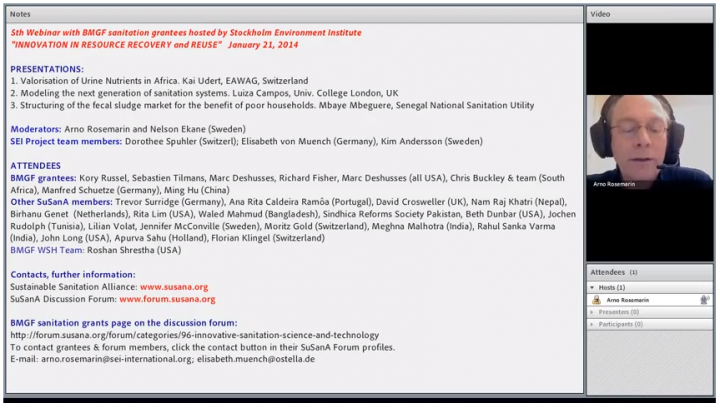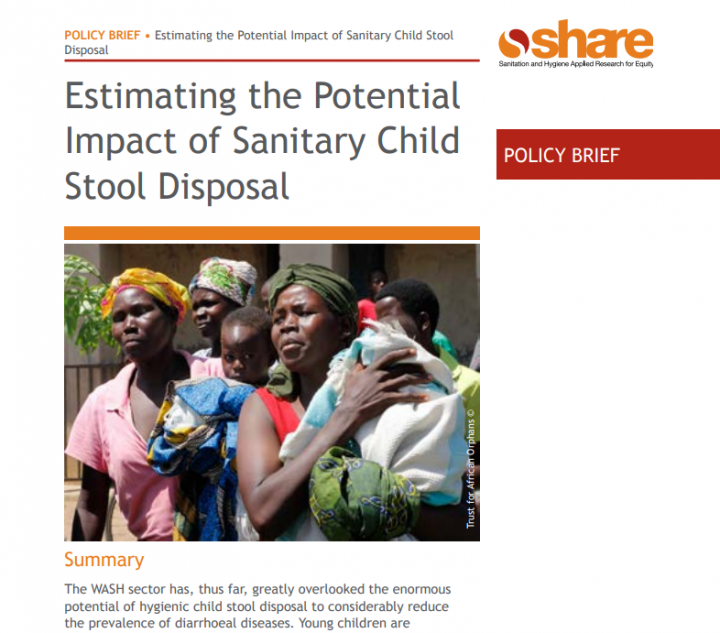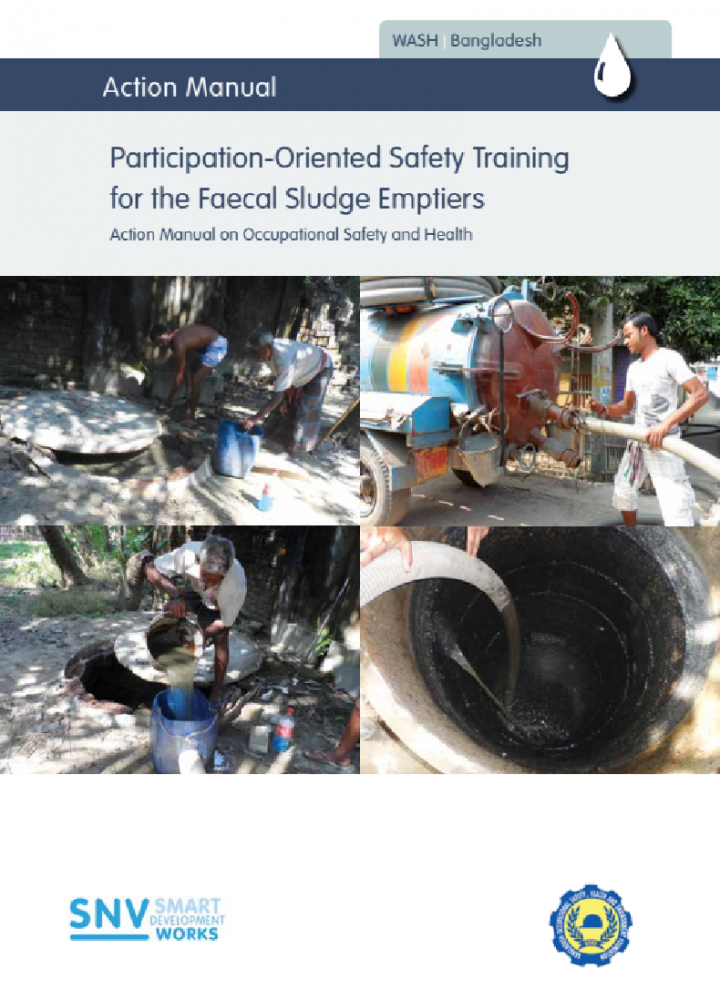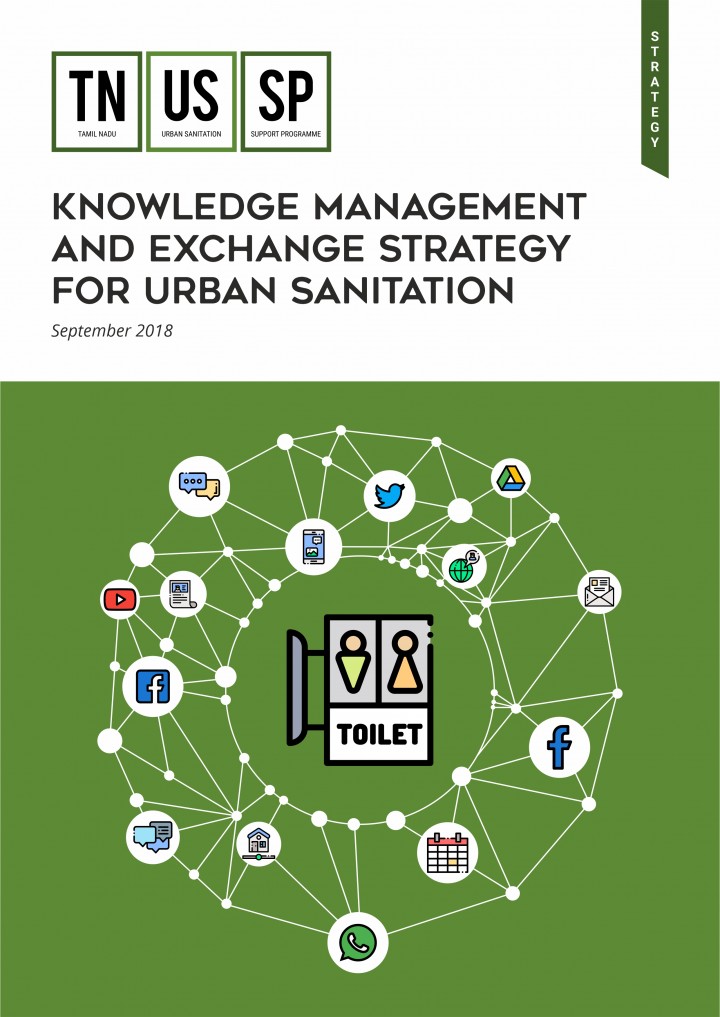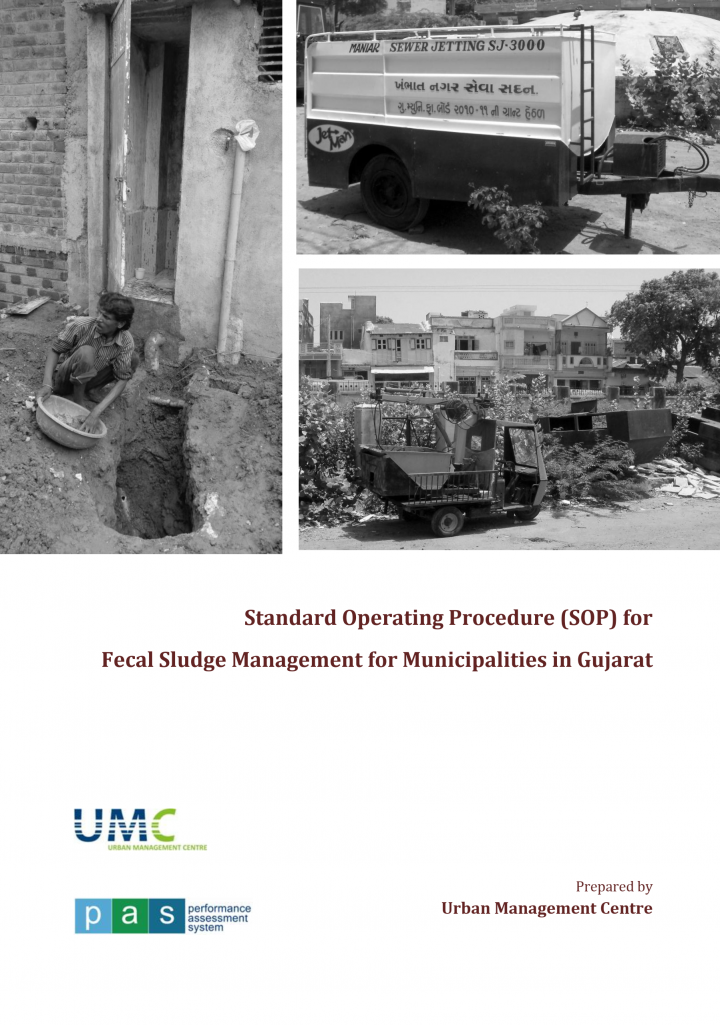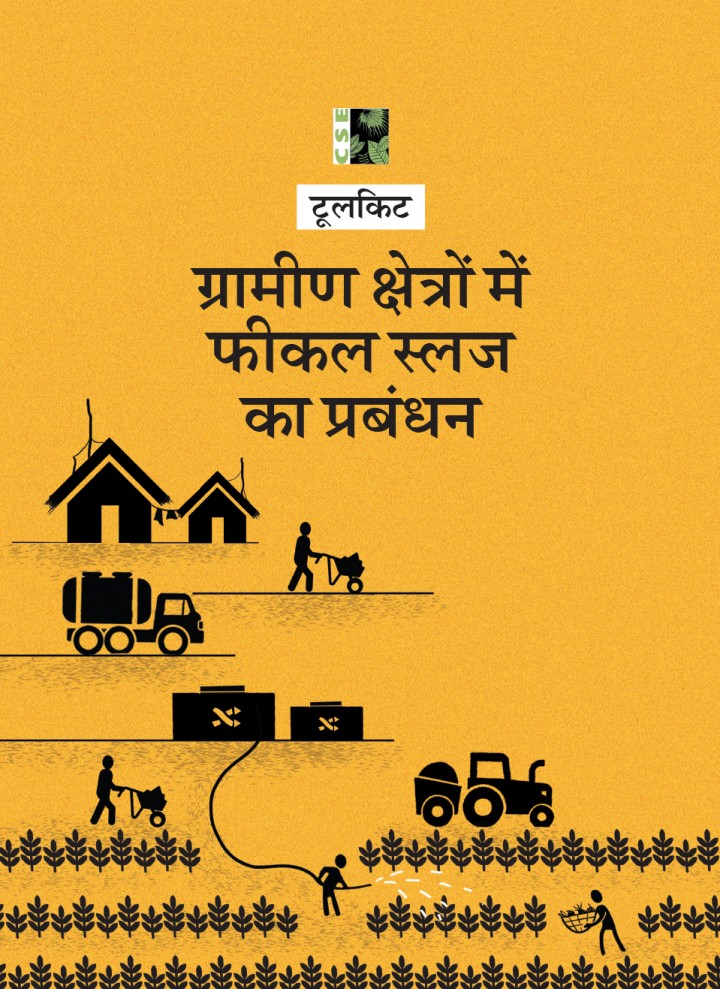Searching for information on Sanitation Workers?
The Sanitation Workers Knowledge + Learning Hub is the best source for all current news, trends, articles and updates on sanitation workers rights around the world.
This strategy for ODF sustainability is guided by the vision of the state government and the requirement of the second phase of the sanitation movement. Further, meeting the said objectives will require progress in several dimensions of sanitation and involvement of different departments of the state government dealing with the particular matter as well as all other stakeholders working in the …
In rural areas of Eastern Europe, the Caucasus and Central Asia (EECCA) without reliable piped water supply, the conventional school sanitation system – the pit latrine – is leading to hygienic and environmental problems. Urine diverting dry toilets (UDDT) have been demonstrated to be an alternative, ecological sanitation solution for rural schools of the EECCA region. This study compares the …
We are very pleased to present the Practical guide to tackling and leveraging social norms in behavior change programming. It provides UNICEF, its governmental and non-governmental partners with accessible and engaging information on social norms, the role they play in perpetuating or changing harmful behaviors, and best practices for programming.
"Resource recovery and reuse" - a discussion with three Bill & Melinda Gates Foundation grantees. Hosted by: Stockholm Environment Institute and the Sustainable Sanitation Alliance (SuSanA) on 21 January 2014. This webinar has been recorded in 4 parts. See links below for Part 2-4.
The three papers given were as follows (see separate video clips):
1) VUNA - Valorisation of Urine Nutrients in …
Cities must ensure universal access to safe, reliable and affordable sanitation so that all urban residents can lead productive, healthy and thriving lives. Globally, the number of urban residents who lack safely managed sanitation has increased from 1.9 billion in 2000 to 2.3 billion in 2015, costing $223 billion a year in health costs and lost productivity and wages. When households cannot …
These guidelines provide additional support and information on designing and implementing hygiene promotion programmes or elements of hygiene promotion in the programmes of other sectors. They should be used in conjunction with the UNHCR WASH Manual and the summary guidance in the Hygiene Promotion Chapter of this manual.
This policy brief highlights the often overlooked and enormous potential of hygienic child stool disposal to considerably reduce the prevalence of diarrhoeal diseases.It features new evidence on the determinants of child stool disposal and offers recommendations for the WASH and health sectors.
In Bangladesh, the most commonly used sanitation options such as pit-latrines and pour-flush latrine use pits or septic tanks for containing faecal sludge (FS) for a certain period of time which require regular emptying when the tanks or pits become full. This emptying and disposing of faecal sludge is usually performed in a traditional (manual) way by a certain group of people in the society …
By mid-century, the global urban population is projected to increase by 2.4 billion people with 60% of growth expected to take place in cites of sub-Saharan Africa (SSA) and South Asia (SA) (UN-DESA, 2015). These regions have some of the lowest rates of urban sanitation coverage and modern fuel access, with only 41% and 67% estimated to have access to improved sanitation and 19% and 55% estimated …
Sirajganj municipality is one of the oldest municipalities in the north-central region of Bangladesh, established in 1869, it is now recognized as a first-class municipality, consisting of 15 wards and 52 mohallas. It is lying on the west of the Jamuna River, about 141 km north-west of the capital city Dhaka. It was once considered a principal jute trade centre. In modern days, it is still an …
A number of WASH-specific models and frameworks exist, yet with some limitations. The IBM-WASH model aims to provide both a conceptual and practical tool for improving our understanding and evaluation of the multi-level multi-dimensional factors that influence water, sanitation, and hygiene practices in infrastructure-constrained settings. We outline future applications of our proposed model as …
This component dealt with the agricultural use of urine and MAP (struvite) as fertiliser as well as the related legal aspects.
The component was led by the University of Bonn.
Here you can find the results of the project component "Agricultural production / Legal situation" that has been presented at the DWA conference "NASS-Tage" and the factsheet gives you a short overview about the main …
In Tamil Nadu, currently, a range of behaviour deficits exist along the full cycle of sanitation at the stages of access, containment, emptying, transport, treatment and re-use/disposal. However, communication strategies in the sanitation sector have been largely limited to promoting hygiene behaviours such as handwashing or stopping open defecation by promoting the use of toilets. While these …
Globally, around 15 per cent of the population are living with some kind of disability. An estimated 13 per cent of people worldwide are over the age of 60. More than 46 per cent of those who are over the age of 60 have a disability. Humanitarian principles require that humanitarian assistance and protection are provided on the basis of need, without discrimination. No one should be excluded …
Ishwardi municipality is a sub-district town of Pabna District under Rajshahi Division, Bangladesh, which is 282 km away from Dhaka City. The municipality was established in 1974. The city is located in the plain area of Bangladesh, situated on the bank of the Padma River. It consists of 9 wards and 27 Mahallahs (small cluster based area of population). It is also the headquarters of the western …
The Sanitation Challenge Conference was deliberately aimed to create a dialogue between civil, process, agricultural and environmental engineers; urban planners, sociologists, economists, and political scientists who are involved in international sanitation research and implementation. It took place in Wageningen, the Netherlands from 19. to 21. May 2008.
Furthermore, this conference tried to …
Sarai Taikore south is a small Low-Income Group (LIG) settlement in Chunar Nagar Palika Parishad (CNPP) (geographical coordinates 25°06'53.7"N 82°52'25.7"E) in the state of Uttar Pradesh, India (Figure 1). It is located within Ward No. 5 of Chunar Nagar Palika Parishad (the city has a total of 25 wards). As per Census of India, 2011, Sarai Taikore south is part of Ward No. 5 and is surrounded …
In the main building of the GIZ headquaters located in Eschborn, 23 waterless urinals of Keramag and 38 RoeVac© NoMix toilets have been installed for the source separation of the wastewater streams.
Within this project component, the RoeVac© NoMix toilets are tested in a continuous-operation mode and necessary modifications are made.
In the course of the project several modifications of …
Faecal sludge management is essential to consolidate the gains from Swachh Bharat Mission. This is a toolkit in Hindi for practitioners for FSM in rural India. This toolkit in Hindi is a useful toolkit for managing faecal sludge in rural areas. It fills a gap in know-how and is of use to planners and practitioners to improve the management of faecal sludge in rural areas. It will be useful to …
“The most effective means of consistently ensuring the safety of a drinking-water supply is through the use of a comprehensive risk assessment and risk management approach that encompasses all steps in water supply from catchment to consumer. In these Guidelines, such approaches are called water safety plans (WSPs)”.
The words above open Chapter 4 of the Third Edition of the WHO Guidelines …





